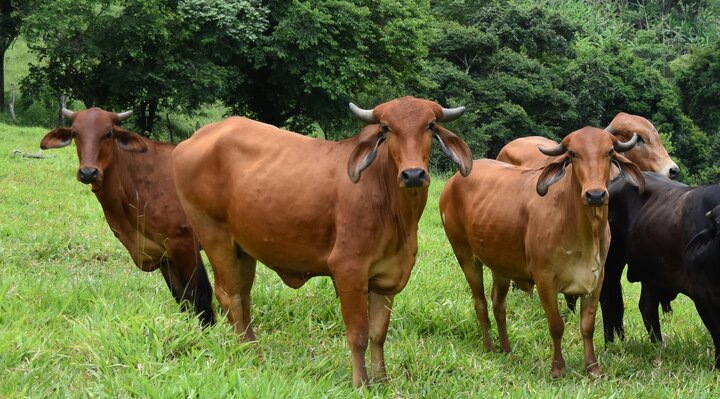Rethinking ‘impossible’: creating a platform for developing novel vaccines against animal trypanosomiasis in Brazil
Project summary
Animal African Trypanosomiasis (AAT) is a livestock disease caused by a blood parasite called Trypanosoma vivax. In South America, biting flies transmit T. vivax resulting in frequent AAT epidemics, substantial animal mortality and economic loss. This pilot project will create the capacity to develop novel vaccines for AAT. A vaccine has enormous commercial potential in Brazil, which is the world’s largest beef exporter and where meat exports are around 7% of GDP. AAT infection reduces profit per animal by 11%, so a sustainable solution to AAT will have direct economic benefits to livestock production in Brazil and across South America. However, research on human trypanosomes has shown that they change their surface proteins to prevent the immune system from identifying and destroying them. Due to this process of antigenic variation, vaccination against AAT has generally been considered impossible. However, our research on T. vivax has suggested that we can target invariant features and so remove this major bottleneck in progress. We identified a suite of T. vivax-specific cell surface proteins that do not display antigenic variation, but do elicit strong immune responses in natural infections, and we have developed a system for producing T. vivax proteins for vaccination. We will vaccinate cattle with one novel T. vivax antigen and test whether this protects them against T. vivax infection, and, if so, what kind of immune response is necessary. This will establish proof-of-principle that we can express and evaluate antigens, leading to a full-scale project testing our entire panel of T. vivax-specific proteins using different vaccination methods. This project will translate our insights into parasite biology into the first experimental vaccine, a combination of protective antigens that can be used in a clinical trial; this is an essential step in removing the burden of AAT on animal health and economic prosperity.
Project outcomes
Our aim was to express antigens of one T. vivax-specific protein family and vaccinate mice and livestock, testing the protective effects against experimental T. vivax infection. Vaccination of mice with our recombinant antigens produced a mixed Th1/Th2-type immune response based on levels of proinflammatory cytokines IFN-γ and TNF-α and immunization with one of our antigens with a Quil-A adjuvant elicited a partially protective response, with a significant decrease in the parasite burden in vaccinated mice at 8dpi, indicating 60% efficacy. Our vaccination and challenge experiment in a goat model tested the protective effect of another member of the same T. vivax-specific protein family (AJ7), which confirmed the seroconversion of total IgG antibodies detected 6 weeks from the first immunization when animals were vaccinated with AJ7 co-administrated with a Freund’s complete adjuvant. However, after challenge with T. vivax all vaccinated animals, regardless of the adjuvant applied, developed acute infection with peaks of parasitaemia typical of T. vivax infection. Therefore, vaccination with AJ7 did not confer protective immunity in the goat contrary to the protection seen against acute infection in a murine model. This suggests that AJ7 antigenicity is not sufficient to confer immunity and other immunological factors not identified must be involved in the process. Overall, while the project has shown that these T. vivax-specific proteins are immunogenic antigens capable of eliciting a favourable immune response postvaccination, they have not yet proven to be robustly protective against T. vivax infection.
